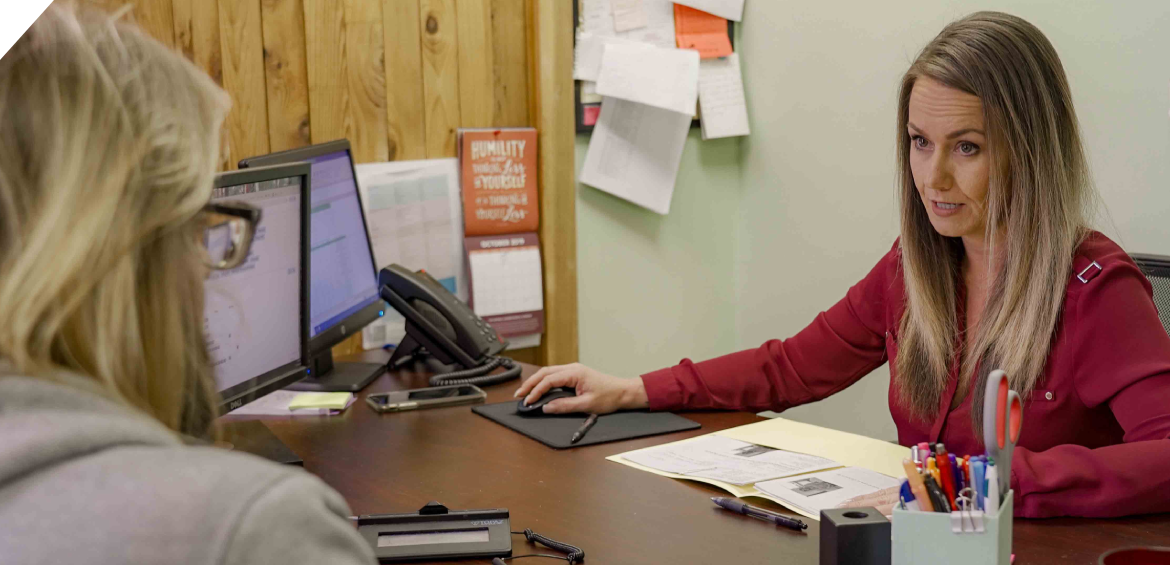9 Healthy Coping Skills In Recovery
At Harmony Ridge Recovery Center WV, we can provide the support and guidance needed to learn the essential skills that will empower you to maintain your sobriety. Your well-being is our priority.
Once you’ve finished addiction treatment and you’re sober, you might think you’re in the clear. However, the work of recovery has only just begun. As your counselors and treatment center staff at Harmony Ridge Recovery Center WV have told you, there is a chance of relapse, which is a return to drug and alcohol use. Fortunately, using healthy coping skills for addiction recovery can help you on your journey to recovery. We’ll discover triggers and how you can handle them using said healthy coping skills.
What Are Relapse Triggers?
Relapse triggers are people, places, things, and feelings that remind you of your previous substance abuse. These can bring about urges and cravings that can result in relapse, which is why it’s important to have a relapse prevention plan. People who have used drugs for a long time associate substance use with feeling good. Even after you get sober, these associations will still be there, and when you encounter triggers, you’re bound to crave drugs and alcohol.
Whether you’ve abstained from substances for two months or two years, you must be aware of triggers that set off your cravings.
External Triggers

External triggers are physical things that remind you of past drug use. When facing reminders of past drinking, having coping skills for drug and alcohol cravings makes all the difference. Some examples of external triggers include:
- People: Those closest to you (friends, family, coworkers, former drug dealers) can be triggers that cause you to relapse. You shouldn’t be around loved ones who have substance use disorder.
- Places: Walking or driving by a location where you used to drink or use drugs can set off cravings. These can include bars, restaurants, neighborhoods, bathrooms, and hotels. Try to avoid these places by using an alternative route to get to your destination.
- Objects: Even material things can spark cravings. Drug paraphernalia, spoons (for heroin users), movies, and empty pill bottles are all things that can influence a recovering addict’s behavior.
- Activities/Situations: Stressful situations can push those in recovery over the edge. These don’t just include losing a job or a loved one. Joyous occasions like weddings, birthdays, and other parties where alcohol is flowing can also induce cravings. Other situational triggers include”
- Calls from creditors
- Payday
- Before, during, and after sex
- Being home alone
- Eating lunch or dinner
- Talking on the phone
Internal Triggers
Internal triggers are emotions, feelings, and thoughts that you associate with drug use. These are harder to manage than external triggers in recovery because you can’t always avoid them. Internal triggers can lead to negative behavior that eventually leads to relapse.
Examples Of Internal Triggers Include:
- Negative feelings: If you ever feel irritated, angry, jealous, or anxious, you may think about turning to drugs and alcohol for comfort.
- Normal feelings: You might not think it, but even normal feelings can be triggers. Relaxation, boredom, embarrassment, and neglect can make you think about using.
- Positive feelings: Feeling excited, happy, confident, and strong can also lead to relapse. Celebrating something could make you want to reach for a bottle and join in on the fun.
To recognize which feelings could potentially set off a relapse, ask yourself the following questions:
- How do I feel before using substances?
- How do I want to feel before using drugs and alcohol?
- In the last week, how did I feel when I used or wanted to use drugs and alcohol?

Unhealthy Coping Skills In Recovery
Bottling Up Your Feelings
Some people tend to bottle up their emotions because they’re afraid to show vulnerability. However, doing this can cause you to act out in other ways, including using drugs or drinking to cope with your feelings.
By taking the following steps, you can learn how to better manage your emotions:
- Communicate your feelings consistently
- Figure out why you keep your feelings inside
- Accept and own your feelings
- Write in a journal
- Talk when you need to, if you’re still struggling to express emotions, options like individual therapy for addiction or family therapy for addiction may help.
- Release your bottled feelings
Hanging Out With Friends Who Use
If you’re feeling lonely, you might feel tempted to fall back into old habits. This can include getting together with friends, family members, or coworkers who abuse substances. When you’re early in your recovery, you must avoid these loved ones. Find friends who will support you in your transition to sobriety. You might also consider substance abuse treatment WV centers for a more supportive environment while you adjust.
If you’re invited to an event with some of your old friends, explain your situation to them. Real friends will understand that you need time away, and this honesty will strengthen your friendship. If these friends don’t understand and even tempt you to drink or use drugs, you need to set boundaries. Try going to a coffee shop or juice bar instead of a bar or other establishment that serves alcohol. If avoiding certain environments isn’t enough, an intensive outpatient program West Virginia has may offer stronger support.
10 Healthy Coping Skills To Practice In Recovery
There are plenty of unhealthy habits that may look like coping skills for addiction but actually pull you backward. Below are 10 ways you can practice coping skills for recovery that actually support your long-term goals.
Be Honest With Yourself
You’re bound to come across things throughout the day that can make you upset. When this happens, recognize your feelings and move on with the rest of the day.
Practice Gratitude And Keep A Daily Journal
Practice Meditation
Attend Therapy Sessions
Surround Yourself With A Support System
These support groups will provide you with a sponsor who has been in recovery for years and can offer you a helping hand. This is especially helpful when cravings come along.
Learn To Relax
We encounter many high-stress situations, whether we’re at work, school, or home. One of the best ways to decompress is to learn how to relax in any situation. Take a long bath or listen to soothing music after a long day. Yoga can also help you relax your mind while strengthening your body.
Meditation is a wonderful relaxation technique as well. Take a walk, watch your favorite TV show, or sit on the beach and listen to the sounds of the ocean. When you practice guided imagery, you can imagine yourself in a relaxing place, too.
Eat Right And Exercise Regularly
Exercising can also release endorphins in your brain, and this makes you feel good. It also adds structure to your day, and having a routine is key to staying sober. Taking care of your body by exercising and eating right will
Do Activities You Enjoy
Recognize The H.A.L.T. Symptoms
Contact Harmony Ridge Today!
The first step toward achieving recovery is to reach out to one of the rehabs in WV that can get you on the track to recovery. Our admissions team is available 24 hours a day, 7 days a week, 365 days a year. Give us a call today!
Contact Us TodayCreating A Relapse Prevention Plan
When you’re at Harmony Ridge Recovery Center WV, we can help you create a plan with recovery coping skills that work in real-life situations. Our counselors will use the tools and skills you’ve learned to help you prevent relapse. This may include recommendations like partial hospitalization program West Virginia residents rely on for those need more structured care.
A good relapse prevention plan might include some elements of the following:
- Daily exercise
- Daily meditation
- Praying or other forms of spirituality
- Daily journaling
- Practicing a hobby like crocheting or learning a new instrument
- Finishing everything on your to-do list every day
- Reaching out to a sponsor if you come across a trigger or just need to talk

What If I Relapse?
If you relapse, don’t consider it a failure. Although you’ve suffered a setback, it doesn’t mean that there isn’t hope left for you. Everyone encounters obstacles on their road to success. It’s okay to slip, but practicing coping skills for substance abuse can help you recover quicker. Relapse is more common than you think; most people in recovery return to drug and alcohol use within one year of completing treatment.
You might have to enter treatment again, possibly through residential treatment facilities in WV or a long-term drug rehab in WV, if your situation is dire. However, by attending support groups like Alcoholics Anonymous or Narcotics Anonymous and participating in aftercare programs, you should get back on the right track soon enough.
Harmony Ridge Recovery Center WV Is Here To Help
Our West Virginia rehab facility is an ideal place to reflect on and recover from negative behavior. With a recreation center, indoor pool, and gym, you’ll never be bored and will always have something exciting to look forward to. We can also teach you more about healthy coping skills in recovery.
If you need help with addiction, contact us today. You’ll be glad you did, and we’ll be with you every step of the way.
Jump To Section
Begin Your Journey to Healing Here
Ask me about recovery, I can help you!
Our recovery specialists are standing by 24/7 to help you or your loved one.
Or call us: 


